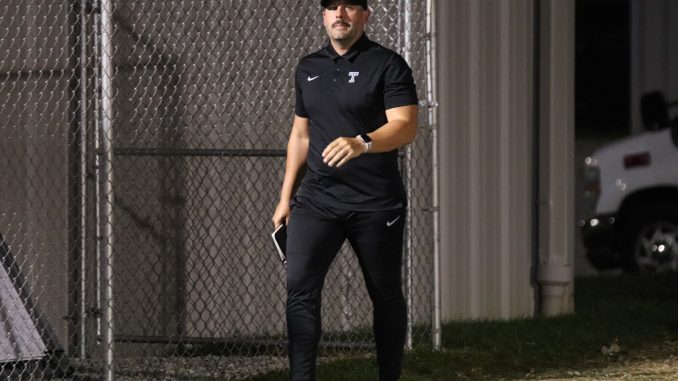
When head coach Brian Rowland steps onto the field at the Temple Sports Complex each day, he wants to give the Owls the same opportunity his coaches gave him: a chance to grow as a player, he said.
Rowland is now in his fourth season with Temple University men’s soccer and his successful athletic career has helped him to expand the Owls’ program to develop professional players.
During the 2021 season, Temple has posted a record of 1-3-2 and a mark of 0-2-0 in the American Athletic Conference. Despite dealing with tough injuries, including redshirt-freshman goalkeeper Eoin Gawronski fracturing his foot, Rowland hopes to lead the team to a deep run in the conference tournament with his past experience and knowledge of the game, he said.
In his first year with Temple in 2018, Rowland made a 17-man roster change and brought in an entirely new coaching staff to create a winning team by identifying new talent where certain schools may not be recruiting, he said.
Part of the new coaching staff is assistant head coach Armante’ Marshall, who believes part of the reason he and Rowland click together as coaches is due to their similar philosophy of making the most of their experience, Marshall said.
“It’s been a really good partnership, a really good relationship,” Marshall said. “You never know what to expect but he is a very passionate coach about what he wants.”
Rowland led the squad to wins in 2018 against nationally-ranked teams like Old Dominion University and the University of Central Florida in his first year at the helm.
“We all kind of showed up on the first day and figured it out and won some pretty important games,” Rowland said. “We were in every game that year and I think we could have probably won a few more games had we been maybe a little bit more seasoned as a group.”
In the first round of the AAC Tournament in 2019, the Owls defeated Memphis University for their first-ever win in conference playoffs.
When the Owls were competing in the spring last season, Rowland recorded the team’s highest-ranked win against No. 2 Southern Methodist University and defeated No. 23 ranked Tulsa University, while finishing with a 5-4-2 record.
This was the group’s first winning season since 2017. The team also clinched the third seed in the AAC playoffs, the highest seed in postseason history.
Rowlands coaching tactics are different from the ones graduate student defender Mickael Borger experienced before joining the Owls’ program, he said. During practice Rowland prioritizes time for individual position groups to work with one another, which Borger believes is part of Temple’s success.
“He’s trying to implement this winning mentality,” Borger said. “He helped me and other players to really have this, to be renewed, to want to win every single game, to compete all the time.”
Nine of Rowland’s former players earned postseason accolades from the AAC under his direction and mentorship, including First-Team selections sophomore forward Sean Karani and graduate defender Pierre Cayet.
“We can’t argue with first round draft picks and conference players of the year, I mean these are big accomplishments for guys that came here when there was nothing,” Rowland said.
Rowland played goalkeeper for the Canadian Youth National U-20 team in 2001 and this jump started his successful playing career.
He then went on to play in college for nationally-ranked University of Maryland in Baltimore County, where he graduated as the career and single-season record holder in shutouts and served as a two-time captain for the team. He was later inducted into UMBC’s Hall of Fame in 2014.
Following college, Rowland played professionally for the Toronto Lynx in the United Soccer League A-League from 2003 to 2004, and learned details on goalkeeping from other guys in the game, he said.
“What I learned the most was, how to be part of a winning culture,” Rowland said.
Playing professionally helped Rowland become a confident leader by teaching him the ins and outs of the game, but also helping him understand the different phases an athlete has to advance in to make it to the professional league, he said.
“It was a great experience being able to play for four years, firstly in this job, it helps me relate to them and share some experiences,” Rowland added.
The coaching staff is proud of the progress Temple has made, but the remaining goal is leading the Owls to an NCAA tournament victory and growing the development of players who were under recruited, Marshall said.
Rowland hopes to grow the confidence that his former staff members instilled in their program into the Owls program as he continues his role as head coach, he said.
“What it comes down to is just being able to put in the work, loving what you do and and really you know, invest in yourself and helping their experience,” Rowland added. “Which then ultimately makes my experience much better.”



Be the first to comment